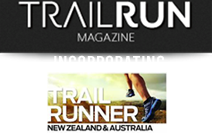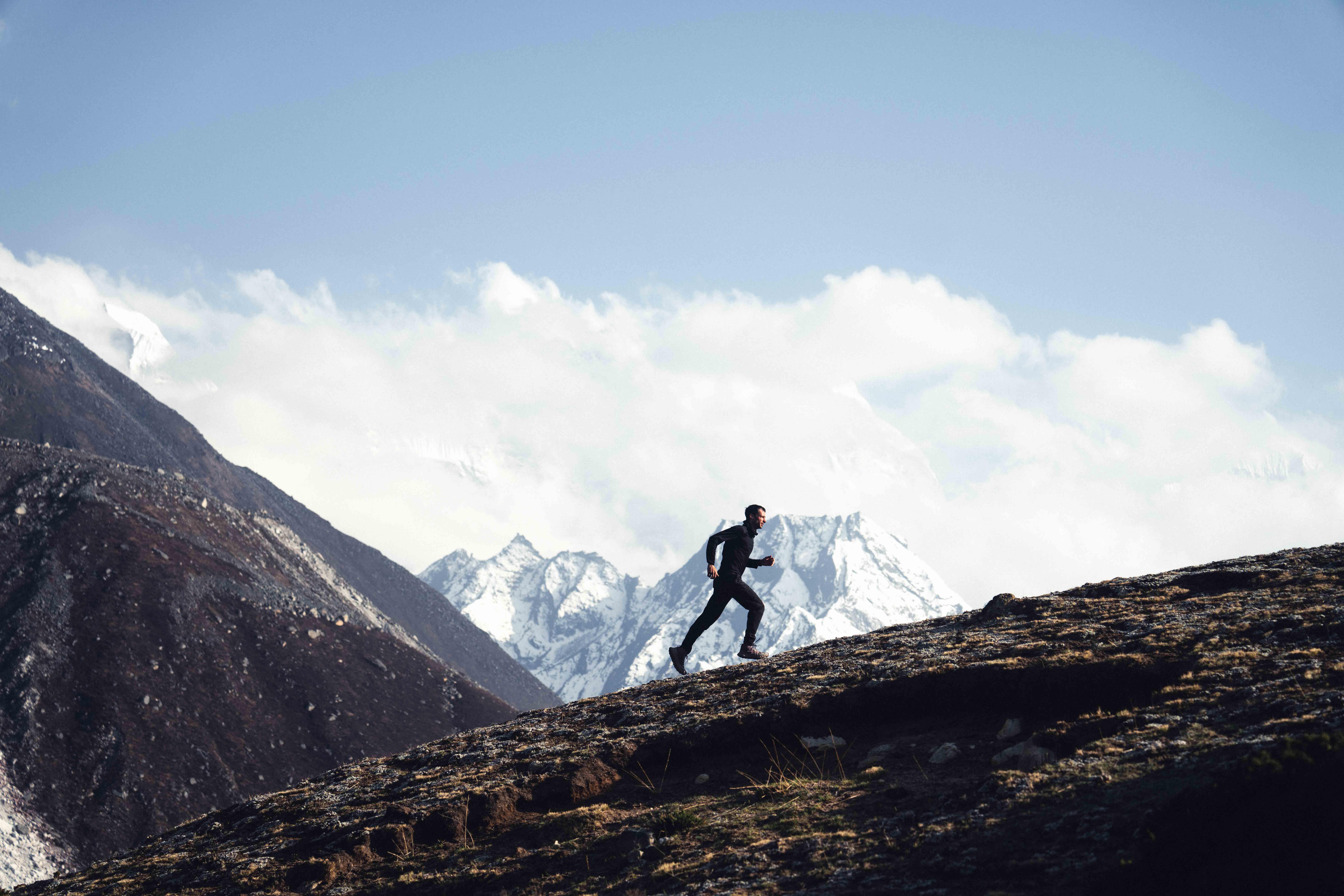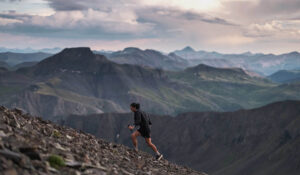He is arguably trail running’s Greatest Of All Time. Kilian Jornet Burgada is a Spanish pro sky runner, trail runner, ski mountaineer, ultra runner and explorer of all things outdoors. Dominant in the sport of running since 2007, Kilian’s list of prestigious wins and titles is longer than you could ever imagine. He’s also summited Mount Everest twice, because why not?! Editor Kate Dzienis together with guest interviewer Simon Poli, an avid trail runner who himself has achieved incredible results in the world of racing, were given the opportunity to speak with Kilian to see what he’s doing now with his new brand Nnormal and how life in Norway with his family is treating him.
INTERVIEW BY: KATE DZIENIS & SIMON POLI IMAGES: DAVID ARIÑO, NICK DANIELSON, JAIME DE DIEGO, JULIEN RAISON
After living in Norway now for so long, do you ever think about how life would be different if you had continued on a professional skiing mountaineering path?
Honestly, it’s difficult to say how my career might have shifted if circumstances were different. I’ve always seen skiing, mountaineering and trail running not just as sports, but as complementary activities of a lifestyle connected to the mountains. My journey in both disciplines has been less about pursuing goals and more about the connection I feel with nature.
Being able to train in Norway’s stunning landscapes has been a privilege. This place has been a constant source of inspiration and a perfect setting for both trail running and skiing mountaineering.
TRM: You have been labelled as arguably the G.O.A.T of trail running. Does this label add extra pressure when you compete knowing that everyone expects you to win? How do you best handle that pressure?
Honestly, I’ve never been one to chase after labels or titles. My focus has always been on pushing my own limits and exploring what’s possible. I believe in being the best version of myself, both as an athlete and as a person who deeply respects and loves the mountains.
When it comes to pressure, it’s true that in the early days of my career, feeling the weight of expectations could be challenging. What used to feel like pressure when I was younger has transformed into something more akin to nerves—a kind of anticipatory energy that heightens my focus and keeps me grounded in the moment. These nerves are important; they remind me that what I’m doing still matters deeply to me, that I’m still passionate.
Does having that label influence what events you compete in?
I don’t think so. It’s about embracing the experience, staying connected with my surroundings, and remembering why I fell in love with each trail running race.
You seem to be able to back up race after race and do so successfully, what does an average week of training look like for you and do you ever have weeks where you just think about not training?
My training routines are totally based on how I feel in each moment. There’s no objective rather than the training itself, and that’s how I try to improve every day. My goal has always been to enjoy the process, to explore myself and my inner limits. Competitive results are a part of this, which makes you push yourself even more. In the end, competing is the perfect excuse for athletes to train harder.
When not running events you have a habit of doing something that most mortals just think wow! I.e. Mt Everest Climb, 7 Peaks of Romsdal, Vertical KM, etc. How do you decide on what or where you want to challenge yourself?
There is no special way of deciding, usually they come across by reading about them or just imagining if some routes or adventures could be possible. 7 Peaks of Romsdal is a project that I always had in mind. It’s just a matter of finding the moment and conditions where I’m able to fit these kinds of activities into my training.
It’s also about the connection I feel with the place and the story behind every adventure. For instance, I wanted to tackle the Bob Graham Challenge because of the history of fell running and to better understand and connect with a community and a history. In any case, there’s a deep respect for the mountains and the natural environment in every challenge I take on.
Having a very successful career with one of the world’s major trail/skiing brands in Salomon, what and when was the moment you decided to start NNormal?
I’ve always been obsessed with gear. When I was just a kid I spent a lot of time imagining how my perfect running shoes would be, and then drawing them on my notebooks. Having the opportunity to conceive a project like this is something unique and I’m super excited to have started a partnership with Camper one year ago.
We met with the Camper team as we had friends in common, and we started talking and realised we were sharing the same philosophy and vision and we thought we were the right partners. We agreed that we needed a new way of thinking and acting in relation to our environment and outdoor activities, so sharing these values was the most important reason to start working together and launch NNormal.
Are you and the NNormal team surprised by the quick success of the brand and where it’s currently positioned in the trail running world?
The feedback that we are getting is very good and we are very happy for that. However, we know we need to keep working and putting all our effort into our commitment. Some customers have proudly told us how many kilometres they have run with the same pair of Kjerag without losing functionality. Seeing that our shoes resist kilometres and kilometres is undoubtedly the most satisfying, since this is the main purpose for which they were designed, and it motivates us to continue working on developing our products while trying to change the game rules in the trail running gear industry.
The NNormal Project is an amazing success which I would put down to your name and attitude being a major factor, do you think this will encourage other brands to really focus on a sustainable sport instead of focusing on high turnover and mass producing gear?
We have always wanted NNormal to be more than a company, a tool that creates a positive impact. One of the company’s missions is to change the rules of the game in the industry, promoting the circular economy and avoiding overconsumption. If that serves as an example for other companies or contributes to the transformation of the economy, we are more than satisfied and will undoubtedly continue to strive towards that.
With the values of Nnormal focused on reducing the impact on the environment, whether it be through education in the running communities, reusable and recyclable gear or always reviewing production practices, we wanted to ask about events. What approach is Nnormal taking towards running events?
We knew that running events would be something challenging for NNormal, since there is an environmental impact associated with them. Our approach is to address these issues head-on, while also being realistic about the practicalities of hosting and participating in events.
Firstly, in terms of gear, we emphasise the importance of durability and repairability. We encourage people to use gear that lasts longer, reducing the need for frequent replacements. Our products are designed with this ethos, ensuring they are not just environmentally friendly but also durable and practical.
Travel is another significant aspect. While it’s challenging to completely eliminate travel for events, we advocate for more local and regional races to reduce the need for long-distance travel.
We aim to have a presence in the running community to spread our message, but we want to do so responsibly. We try to stay true to our values and we believe that by leading by example, we can collectively work towards more sustainable and environmentally friendly running events.
Most running couples with kids have to flip a coin to decide who gets to compete in an event, is there a similar decision making process with you and Emelie?
Balancing family and competitive running is indeed a significant aspect of our lives, but Emelie and I have been fortunate in managing this balance quite harmoniously. It’s a team effort, and this support system allows both Emelie and I to train and compete without compromising on our family time. It’s about finding that equilibrium where our love for our family and our passion for nature complement each other. Besides, we love to explore and enjoy nature with our girls as well.









